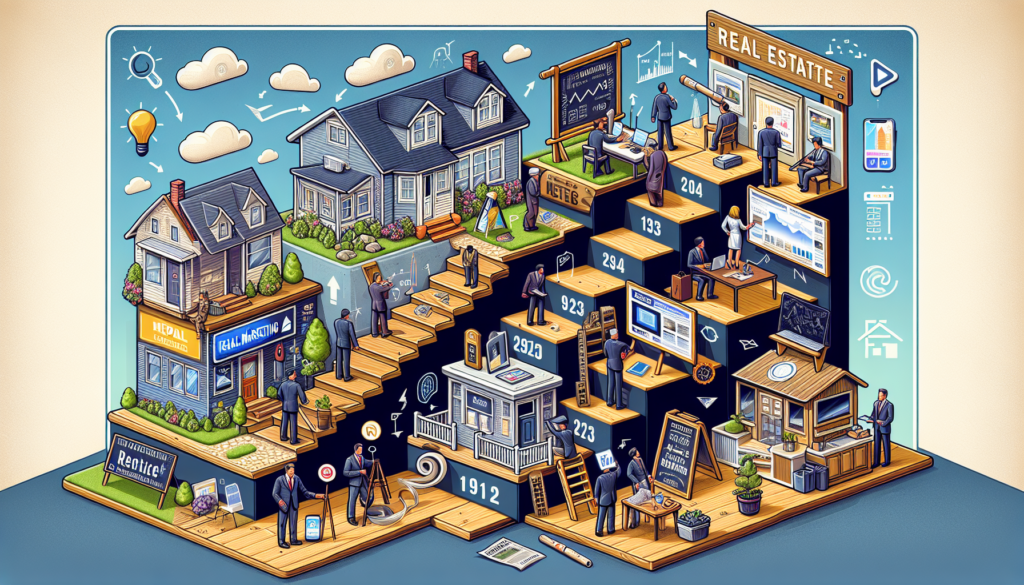Real Estate Marketing is a discipline in constant metamorphosis that, over the years, has seen the intersection of technological evolution with the most advanced commercial strategies. From its inception, its aim has been to highlight available properties and facilitate their sale or rental, but the way this goal is achieved has changed radically. The combination of data analysis, digital marketing, and technological innovations has led the real estate industry to a new horizon of communicative and operational possibilities. This presentation aims to dissect the elements that shape this evolution, highlighting modern practical applications and projecting their future directions.
The Rise of Technology in Real Estate Marketing Strategy
Big Data and Predictive Analysis
The application of big data and predictive analysis in real estate marketing is redefining the approach to potential customers and the market. Specialists in this area use large volumes of data on buying behaviors, preferences, demographic movements, and economic trends to identify market opportunities and optimize marketing campaigns.
Virtual Reality and Artificial Intelligence
The use of virtual reality (VR) and artificial intelligence (AI) in this sector has taken the potential customer’s experience to another level. With virtual tours, it is possible for an interested party to “visit” a property without leaving their home. AI, on the other hand, is driving chatbots that improve customer service and personalized recommendation systems that simplify the search for the ideal property.
Content Marketing and SEO
Content marketing, in conjunction with a well-executed SEO strategy, effectively reaches a target audience. Property listings optimized for search engines help attract qualified traffic to real estate websites, while rich and relevant content generates engagement and establishes brand authority in the sector.
From Theory to Practice: Current Case Studies
Real Estate Portals and Their Applied Big Data
On leading platforms such as Zillow or Rightmove, the use of data on how and when users interact with properties enables advanced analytics that influence not only property presentations but also the allocation of advertising budgets in real time.
VR and AI: Innovative Success Cases
Companies like Matterport are elevating VR by providing three-dimensional property tours with impressive quality and realism. On the other hand, proptech companies such as Opendoor are applying AI models for the automation of valuations and real estate transactions, thereby offering a more efficient buying and selling experience.
Exemplary SEO and Content Marketing
Due to their importance in terms of traffic attraction, reference portals such as RE/MAX or Century 21 invest considerably in content that offers not only property listings but also guides, advice, and market analysis that reinforce their search engine visibility and brand positioning.
Future Directions and Possible Innovations
Integration of Exponential Technologies
The integration of more emerging technologies such as blockchain in real estate transactions promises higher levels of transparency and security. The possibility of implementing smart contracts could revolutionize the way properties are bought, sold, and rented.
Advances in User Experience Personalization
Machine learning and advanced behavior analysis techniques can lead to even more sophisticated personalization of the property search process, offering suggestions and options that perfectly match the user’s needs and desires.
Innovation in Sustainability and Urban Design
The real estate marketing of the future will also address the growing demand for sustainability and well-being, integrating environmentally friendly practices and promoting designs that contribute to the development of healthy and resilient communities.
Real estate marketing does not only sell properties; it creates experiences, communities, and, ultimately, is part of the social fabric promoting new lifestyles. This article has outlined how the breakneck pace of innovation in the industry and the creativity applied in marketing strategies are indeed shaping this fascinating landscape where only expectations of growth and continuous evolution remain.

